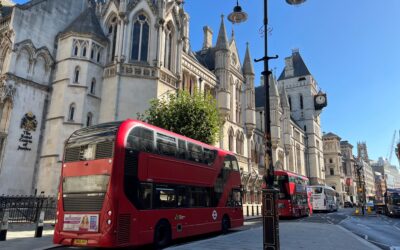U.K. immigration law in surrogacy cases is complex because there is no clear single process which applies to everyone, everywhere. There are number of different possible paths and which is the best one for you will depend on your personal circumstances and the country in which your baby is born.
Travelling home to the U.K. with a baby born through surrogacy in the USA or Canada
If your child is born in the USA then he or she will be a US citizen – you only have to be born in the US to be American. That means your baby will be entitled to a US passport and you can usually obtain one within a couple of weeks of the birth.
It is practically possible to travel back to the UK using your child’s US passport, without applying for U.K. travel documents. Technically, your child will have no guaranteed right of entry on arrival to the UK (since US citizens are only entitled to enter the UK under the visa waiver program as a visitor) so the UK border control officer will need to decide whether to allow entry by discretion.
In our experience, it has become routine for admission to be granted to children born through surrogacy in the US who return home in this way. You need to be prepared for a discussion about your situation on arrival and we regularly provide our clients with a letter to say that appropriate steps are being taken to resolve the legal issues properly, which can help ease things at the border.
The position if your child is born in Canada is broadly the same as the US; your child will be born a Canadian citizen and you can travel in practice using his/her Canadian passport. Surrogacy is Canada is growing and, although still a less common destination than the US, we have now had a number of clients who have returned home from Canada and had a similar experience on arrival.
As admission using a US or Canadian passport is discretionary, you may be more cautious and want to know in advance you will have no difficulties on arrival. If so you can usually apply for a British passport or entry clearance visa for your child in the US or Canada before you travel home. Your eligibility, how long this takes and the process will depend on your surrogate’s marital status, who is a biological parent, whether you intend to apply for a parental order, the type of US court order you have and the origins your own British nationality status (if either of you is British). It is sensible to get early advice as how you set things up may have an impact on the speed and ease of getting U.K. travel documents. Few parents do this because, even in the best case scenario, the wait is typically at least 6-8 weeks. If one or both of you has a different nationality, then other options may be available too, which may be faster.
Travelling home to the U.K. with a baby born through surrogacy in Ukraine or Georgia
The other common international destinations for surrogacy are Ukraine and Georgia. Your child will not be entitled to a local passport if born here, since Ukraine/Georgia law will not recognise your child as having Ukrainian/Georgian parents, and the entitlement to nationality rests on parentage rather than where your child is born. British intended parents with children born through surrogacy therefore need to obtain a British passport for their child (or other appropriate travel documents) before they can board a plane to travel home.
If your surrogate is not married and the biological father is British (other than by descent), your baby will be born British and entitled to a U.K. passport. You can apply via a visa application centre in the capital city of either country and will need to supply various original documents and attend an interview. You may also be asked to do a DNA test. A long wait, often stretching up to sixteen weeks, will follow and there is little that can be done to speed up the process. Lots of our clients manage this process and, while we have a number of practical tips and tricks to share, we always recommend you have somewhere comfortable to stay and are prepared for a considerable wait.
Other applications can be made in circumstances which do not fit this usual path, for example if your surrogate is married or the biological father is not British, and it is always important to verify how the immigration rules will apply in your particular case. Whether your child is born British (or an additional application needs to be made to acquire British nationality) will depend on your status, the type of British nationality you have and your surrogate’s marital status. If either intended parent has a different nationality status (or neither is British), there may also be other avenues you can follow but these will be specific to your own situation and immigration position
The UK’s leading surrogacy lawyers
Find out more about how we support families through surrogacy



